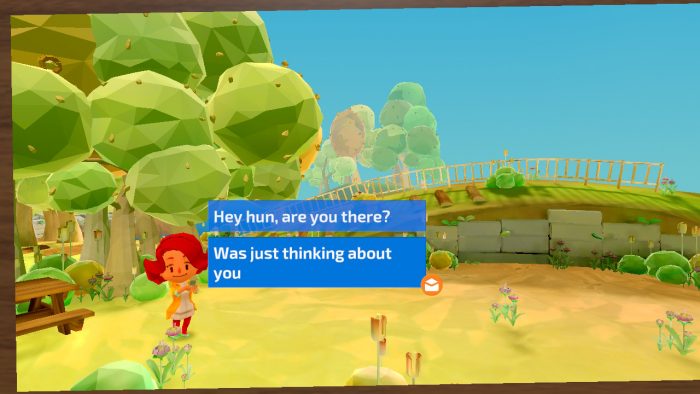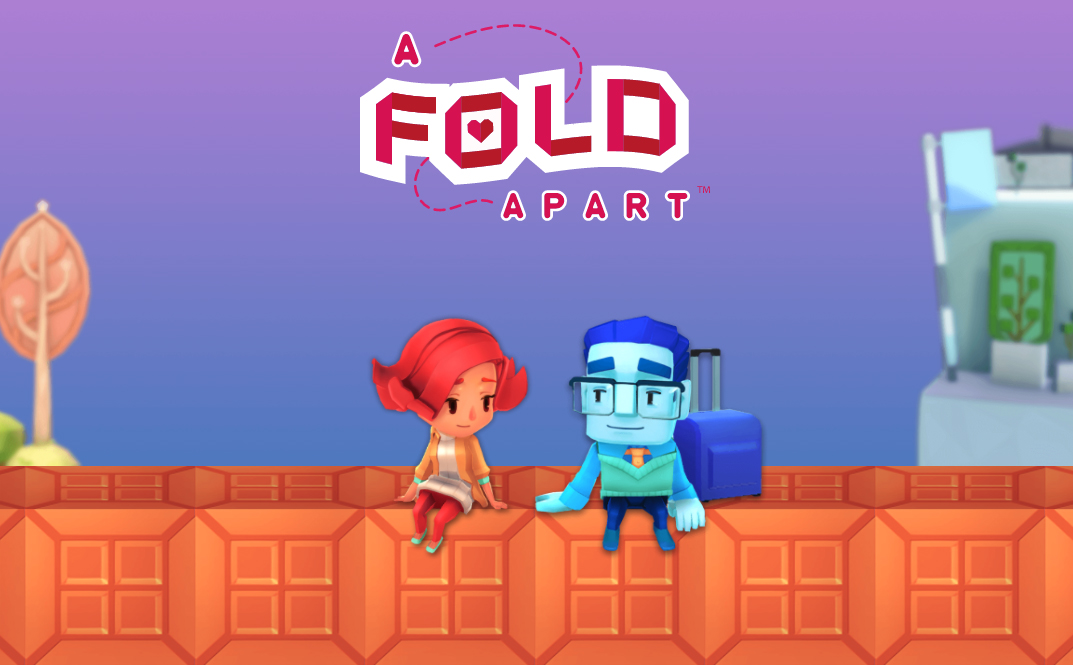A 2D game with a multi-layered story
It feels like every few months now we get to experience a novel game concept that both surprises and delights. The latest in that (most welcome) trend is Lightning Rod Games’ A Fold Apart, and it couldn’t have come at a better time. While under Stay At Home orders in our town, my daughter and I have taken up arts and crafts projects to help us pass some of the time and better reconnect with each other — the hustle and bustle of corporate life typically leaves me with long days at the office and missing out on some of the daily events of a 10 year old’s life. A Fold Apart feels like it was handmade (pun intended) for this kind of circumstance, and works to not only depict how relationships change, but also to do it in a unique way: paper.
Do you remember those little paper fortune-tellers that we used to make as kids? Well, my daughter is in the age range now when those are the gimmick du jour, and we’re creating them for everything from our own daily activities to the love lives of her toys. It can lead to some weird narrative outcomes for plastic pieces (Did you know a fuzzy dog can fall in love with a robot while on vacation on Mars, and have human children? Now you do!) but they’re structure there. Paper seems loose and thin and easy to tear, but when folded and assembled correctly it can have a certain strength and rigidity. A Fold Apart centers itself on this exact idea, using paper as a metaphor for love and relationships.

The game tells the story of lovers separated by distance; one is a free-willed soul while the other works relentlessly at their job. At the onset of the game, we’re offered a choice to make the pair more of a parallel of our own lives, and allow us to better connect to the plot. It deals with very real relationship issues (distance, fear, happiness) that we all have, and the characters’ two sides of the story intertwine to better help us understand their motivations.
Two sides to a story, two sides to a sheet of paper. This is amplified by the two-tone color choice of the game, letting one character focus on cool blues and the other on warm tones. It all complements the dual nature of the story and the actual puzzle solving mechanic.

The structure of the game is a linear 2D puzzle platformer, and as we walk the characters across the stage (think of it as a play on Broadway more than an arcade-like adventure) we often come to obstacles and broken platforms that can only be passed if we fold the edges of the screen onto itself. So, for instance, if we’re playing as “Blue” and are blocked by a gap, we can fold the paper to reveal part of the “Red” stage that includes a path. We can then walk over and continue our current journey. When we solve these puzzles it feels like we’re bringing the couple (or their emotions) closer together by introducing elements of the other’s journey onto our own. And, if for some reason we can’t solve a puzzle easily, a few more folds of the paper later and we have our solution. We can even sometimes flip the page to the neutral side of the world, which sort of acts as a balance point in between their viewpoints, as if we’re slowly oscillating back and forth towards a level plane.

It comes off as very easy to understand at first, if we’re just thinking about it as a game, but once those layers start to peel away we end up getting more and more pulled into the story. In fact, I kind of found myself cheering them on, hoping their relationship issues get resolved.
A Fold Apart isn’t a long game, either. Pushing the paper analogy a bit further, it’s a lot like an afternoon Summer novella that takes three or so hours to tell a part of a greater story without overstepping its bounds. It’s charming, it’s lovely (the art style alone is worth a pickup), and the puzzles are enjoyable. It makes us slightly more appreciative of the different things we go through in relationships, and how some issues are easy to get through while others take work and work and work from both sides.
A Fold Apart is now available on Switch, Apple Arcade, PC, PS4, and Xbox One.
This review is based on an eShop code sent to SideQuesting by the publisher.



No Comments